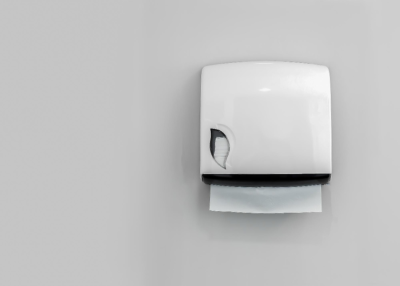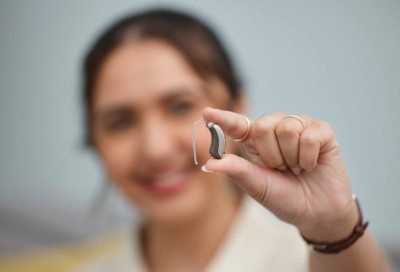The Importance of Nutrition in Addiction Recovery
Warning: Undefined variable $post in /home/dietofli/public_html/wp-content/plugins/code-snippets/php/snippet-ops.php(584) : eval()'d code on line 3
Warning: Attempt to read property "ID" on null in /home/dietofli/public_html/wp-content/plugins/code-snippets/php/snippet-ops.php(584) : eval()'d code on line 3
The estimated reading time is 8 minutes
Warning: Undefined variable $post in /home/dietofli/public_html/wp-content/plugins/oxygen/component-framework/components/classes/code-block.class.php(115) : eval()'d code on line 3
Warning: Attempt to read property "ID" on null in /home/dietofli/public_html/wp-content/plugins/oxygen/component-framework/components/classes/code-block.class.php(115) : eval()'d code on line 3

Read some information on the role of Nutrition in addiction recovery. Nutrition plays a crucial role in addiction recovery. When individuals struggle with addiction, their bodies and minds are often depleted of essential nutrients due to the damaging effects of substance abuse. Incorporating a healthy and balanced diet can greatly support the recovery process and contribute to overall well-being. Here are several reasons why nutrition is important in addiction recovery:
Physical Healing: Substance abuse takes a toll on the body, leading to nutritional deficiencies and weakened immune function. A nutritious diet helps restore proper organ function, rebuild damaged tissues, and promote physical healing. It supports the body's detoxification process and enhances overall health.
Emotional and Mental Stability: Substance abuse affects neurotransmitter levels and disrupts brain chemistry, contributing to mood swings, anxiety, depression, and other mental health issues. A well-balanced diet provides essential nutrients, such as omega-3 fatty acids, B vitamins, and amino acids, which are vital for brain health. These nutrients can help stabilize mood, reduce cravings, and improve overall mental well-being.
Craving Management: Nutrient imbalances can contribute to intense cravings for drugs or alcohol during the recovery process. By providing the body with proper nutrition, including complex carbohydrates, protein, healthy fats, and a variety of vitamins and minerals, cravings can be reduced. Stable blood sugar levels resulting from a balanced diet also help prevent energy crashes and the desire for quick fixes.
Energy and Vitality: Substance abuse often depletes the body's energy stores, leaving individuals feeling fatigued and lethargic. A healthy diet rich in nutrients supplies the body with the energy it needs to recover and rebuild. Proper nutrition can increase vitality, improve cognitive function, and enhance overall productivity and focus.
Stress Reduction: Addiction recovery is a challenging process that can be accompanied by significant stress. Nutrient deficiencies can further exacerbate stress levels. Adequate nutrition, including foods rich in antioxidants and stress-reducing nutrients, such as magnesium and vitamin C, can help regulate stress hormones and support the body's stress response.
Relapse Prevention: Maintaining a balanced diet can contribute to relapse prevention. Poor nutrition can lead to imbalances in brain chemistry and an increased risk of relapse. By nourishing the body and mind with the right nutrients, individuals in recovery can strengthen their resilience and reduce the likelihood of turning to substances as a coping mechanism.
It's important to note that nutrition should be integrated as part of a comprehensive addiction recovery program, alongside counseling, therapy, and other evidence-based treatments. Consulting with a healthcare professional or a registered dietitian who specializes in addiction recovery can help develop a personalized nutrition plan that meets specific needs and supports long-term sobriety.
How Nutrients Affect the Body.
Nutrients play a vital role in maintaining the overall health and proper functioning of the body. Here's a short note on how different nutrients affect the body:
Carbohydrates: Carbohydrates are the primary source of energy for the body. They are broken down into glucose, which fuels various bodily functions, including brain activity and muscle contractions. Whole grains, fruits, vegetables, and legumes are excellent sources of complex carbohydrates that provide sustained energy.
Proteins: Proteins are essential for building and repairing tissues, producing enzymes and hormones, and supporting immune function. They are composed of amino acids, which are the building blocks of proteins. Consuming a variety of protein-rich foods like lean meats, poultry, fish, dairy products, legumes, and nuts helps meet the body's protein requirements.
Fats: Healthy fats are crucial for proper cell function, hormone production, insulation of organs, and absorption of fat-soluble vitamins. Unsaturated fats found in foods like avocados, nuts, seeds, and olive oil are beneficial for heart health, while saturated and trans fats should be consumed in moderation to prevent health issues.
Vitamins: Vitamins are essential micronutrients that are involved in numerous bodily processes. They support the immune system, assist in energy production, promote healthy skin, aid in cell development, and act as antioxidants, protecting cells from damage. Vitamins can be obtained through a diverse diet that includes fruits, vegetables, whole grains, and lean proteins.
Minerals: Minerals are essential for maintaining proper fluid balance, nerve function, muscle contraction, and bone health. Examples of important minerals include calcium, potassium, iron, magnesium, and zinc. These minerals can be found in various food sources, including dairy products, leafy greens, nuts, seeds, and lean meats.
Water: Although not a nutrient, water is essential for life and plays a crucial role in maintaining bodily functions. It helps regulate body temperature, aids digestion, transports nutrients, removes waste products, and lubricates joints. Staying properly hydrated is important for overall health and well-being.
Overall, a balanced diet that incorporates a variety of nutrient-dense foods ensures that the body receives an adequate supply of essential nutrients. Each nutrient has its specific functions, and a deficiency or excess of any nutrient can lead to health complications. Therefore, maintaining a well-rounded diet that includes all major food groups is key to supporting optimal body function and overall health. (1)
Top Foods for Addiction Recovery
Here are some top foods that can be beneficial during addiction recovery:
Fresh Fruits and Vegetables: Incorporate a variety of colorful fruits and vegetables into your diet. They are rich in vitamins, minerals, and antioxidants, which can help repair the body and strengthen the immune system.
Whole Grains: Opt for whole grain options like brown rice, quinoa, whole wheat bread, and oats. They provide a steady release of energy and contain important nutrients such as B vitamins and fiber.
Lean Proteins: Include lean sources of protein like chicken, turkey, fish, eggs, legumes, and tofu. Protein helps repair and build tissues, supports neurotransmitter function, and promotes stable blood sugar levels.
Healthy Fats: Incorporate sources of healthy fats, such as avocados, nuts, seeds, and olive oil. These fats provide essential fatty acids that support brain health and help regulate mood.
Omega-3 Fatty Acids: Focus on omega-3-rich foods like fatty fish (salmon, mackerel, sardines), chia seeds, flaxseeds, and walnuts. Omega-3s have been linked to improved brain function and reduced inflammation.
Water: Staying hydrated is crucial for overall health and detoxification. Aim to drink enough water throughout the day to support your body's functions.
Herbal Teas: Certain herbal teas like chamomile, peppermint, and ginger can help promote relaxation, aid digestion, and provide a soothing effect.
Probiotic-Rich Foods: Consider incorporating probiotic foods such as yogurt, kefir, sauerkraut, and kimchi. These foods support gut health, which plays a significant role in overall well-being.
Stopping Alcohol Craving Naturally Through Diet.
While there is no magic diet that can completely eliminate alcohol cravings, there are certain strategies you can employ to support your efforts in reducing them naturally. Here are some dietary tips that may help in stopping alcohol craving naturally through diet.
Stay hydrated: Proper hydration is essential for overall health and can help curb cravings. Drink plenty of water throughout the day.
Eat a balanced diet: Focus on consuming a variety of nutrient-dense foods. Include whole grains, lean proteins, fruits, vegetables, and healthy fats in your meals. This can help stabilize your blood sugar levels and prevent spikes and crashes that can trigger cravings.
Increase protein intake: Protein-rich foods can help you feel fuller for longer and reduce cravings. Include sources like lean meats, fish, eggs, legumes, and nuts in your diet.
Consume complex carbohydrates: Opt for complex carbohydrates, such as whole grains, legumes, and vegetables. They provide sustained energy and prevent rapid blood sugar fluctuations that can contribute to cravings.
Eat regular meals: Maintain a regular eating schedule with three balanced meals a day. Avoid skipping meals, as it can lead to low blood sugar levels and increased cravings.
Include healthy fats: Incorporate sources of healthy fats, such as avocados, olive oil, nuts, and seeds, in your diet. They help promote satiety and stabilize blood sugar levels.
Limit processed and sugary foods: Highly processed foods and those high in added sugars can disrupt your blood sugar balance and trigger cravings. Opt for whole, unprocessed foods whenever possible.
Manage stress: High-stress levels can contribute to alcohol cravings. Practice stress-reducing techniques such as mindfulness, meditation, deep breathing exercises, or engaging in activities you enjoy.
Supplement wisely: Some natural supplements like magnesium, B vitamins, and omega-3 fatty acids may support overall brain health and mood stabilization. Consult with a healthcare professional before starting any new supplements.
Seek professional help: If you're struggling with alcohol cravings, it's important to reach out to a healthcare professional or counselor who can provide personalized guidance and support.
Remember, while dietary changes can support your journey, addressing the root causes of alcohol cravings often requires a holistic approach that may include therapy, lifestyle modifications, and a strong support network. (2)














